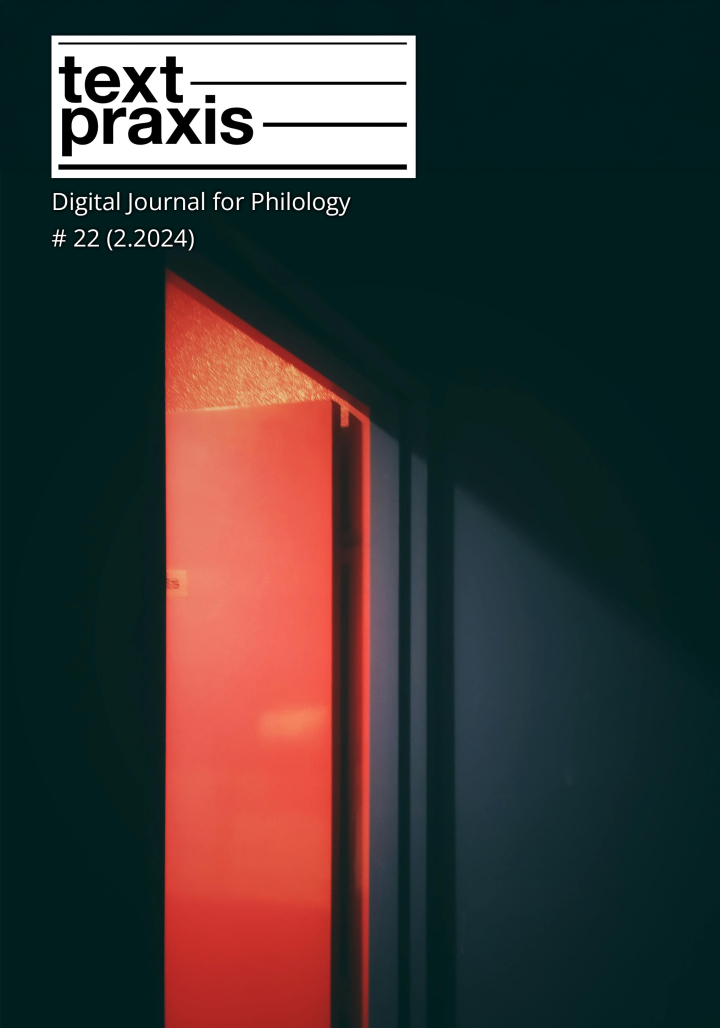Digital Journal for Philology

Textpraxis # 22 (2.2024)
In this issue, Ben Dittmann takes the constitution of textpassages in selected writings by Roland Barthes as a starting point for his notions on the significance of textpassages in dealing with texts. Henning Podulski's contribution is devoted to the literarization of the Ruhr War within proletarian-revolutionary literature in the Weimar Republic and to this end analyses Kurt Kläber's Barrikaden an der Ruhr (1925), Karl Grünberg's Brennende Ruhr (1928) and Hans Marchwitza's Sturm auf Essen (1930). Charlotte Rathjen concludes this issue with an examination of age in literary texts by focusing on Gabriele Reuter´s novel Aus guter Familie (1896), which serves as a foundation for more general literary-theoretical reflections on age and ageing
The article exemplarify examines the cultural techniques that constitute textpassages (»Stellen«) in selected texts by Roland Barthes in order to reflect on the overall significance of the textpassage in dealing with texts.
This article examines the literarization of the Ruhrkrieg within proletarian-revolutionary literature in the Weimar Republic. Through a comparative study of Kurt Kläber's Barrikaden an der Ruhr, Karl Grünberg's Brennende Ruhr and Hans Marchwitza's Sturm auf Essen, different concepts of the general strike, which oscillate between Rosa Luxemburg, Georges Sorel and Walter Benjamin, are negotiated and linked back to the historical events of 1920. The varying degrees of reference in the texts to spontaneity, the massing of proletarian experience, economic or political violence and divergent images of the Ruhr War – partly determined by the authors' proximity to the party – not only reveal the changing organization and cultural policy of the KPD in the 1920s, but also make clear the attempt to integrate the general strike into the cultural memory of the revolutionary workers' movement: on the one hand as a revolutionary proletarian myth, on the other as a partial step towards the realization of a party-organized development process.
Age structures an individual's life from birth to death and generally organizes society into age groups and generations, yet the category of age is predominantly conceptualized and examined as old age in German literary studies. As a result, age is neglected in its holistic quality, namely as a discursively produced and performative category and identity marker, and thus the essential descriptive and cognitive potential of literature is wasted. This article argues for a comprehensive consideration of age and ageing in literary analysis and discusses the consequences of such a literary-theoretical approach using the example of Gabriele Reuter's novel Aus guter Familie (1896).
